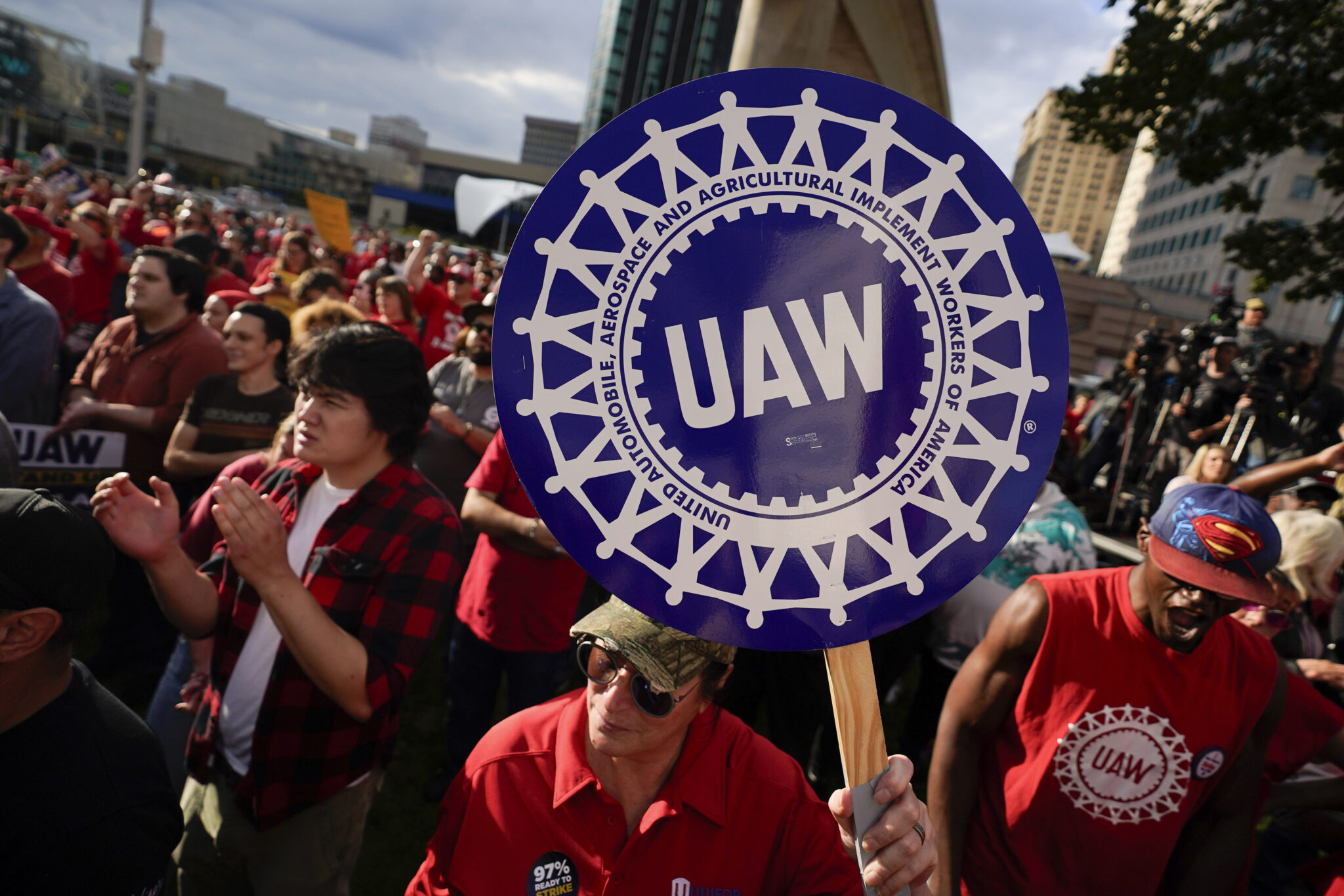
Otto Barenberg is a student at Harvard Law School and the Digital Director of OnLabor.
In today’s news and commentary, Shawn Fain equivocates on tariffs, the Trump Administration quietly ends automatic dues collection at key federal agencies, and pro-Palestinian Google employees sue over firings.
In a speech on Thursday, United Auto Workers President Shawn Fain qualified his defense of Trump’s trade policy, lodging support for “some tariffs on automotive manufacturing and similar industries,” but calling blanket tariffs “reckless.” Fain, who campaigned for Vice President Kamala Harris, has faced criticism in recent weeks for vociferously embracing the White House’s tariff scheme, with some worried the UAW leader is cozying up to a President he has long derided as a “scab.” Fain acknowledged the Administration’s anti-worker agenda, saying he disagrees with “90%” of Trump’s actions: “We’ve seen the destruction of bargaining rights for one million federal workers. We’ve seen an attack on the National Labor Relations Board and the illegal firing of a board member. We’ve seen the attacks on Social Security and Medicare and Medicaid, programs that millions in the working class depending on.” But Fain voiced continued support for the Administration’s protectionist trade policy: “Nothing has impacted working-class Americans in this country more in the last thirty-plus years than our broken trade system, and nothing has been done to address that in the last thirty-some years. So it’s not that we applaud everything that this administration is doing, but it’s the first administration in my working life that’s tried to do something to address this broken trade system.”
Following last month’s executive order stripping collective bargaining rights from two-thirds of the federal workforce, the Administration has quietly ended automatic dues collection at dozens of federal agencies. Union locals reported a sudden cutoff in payments last week, despite the Administration’s pledge that it will await judges’ go-ahead before terminating federal union contracts. “It happened unilaterally, without notice, and it happened quickly,” Matt Biggs, President of the International Federation of Professional and Technical Engineers, told Government Executive. Some unions are more affected than others. AFGE, the largest federal worker union, implemented an alternative, union-administered “eDues” system during the first Trump administration, and so is partially insulated from the cutoffs. Smaller unions must shoulder the high upfront costs of switching systems, but see a silver lining: “If you look at some public sector unions that had to do this in the past with places like Wisconsin, it actually leads to increased membership at the end of the day,” Biggs said. “More people sign up through the eDues process than a payroll deduction, and I think hopefully in the long term it results in increased membership.”
A group of ex-Google employees is suing the search giant over firings of pro-Palestinian workers, alleging violations of Title VII of the 1964 Civil Rights Act and state anti-bias laws. In an April 16, 2024 “Day of Action” at Google campuses across the country, employees protested the company’s contracts with the Israeli government and its “discriminatory harassment” of Palestinian, Arab, and Muslim workers. By the end of the month, all nine plaintiffs were fired; Google took no disciplinary action against counterprotestors. The class action lawsuit is being brought by Levy Ratner, P.C. in the Northern District of California.






Daily News & Commentary
Start your day with our roundup of the latest labor developments. See all
February 5
Minnesota schools and teachers sue to limit ICE presence near schools; labor leaders call on Newsom to protect workers from AI; UAW and Volkswagen reach a tentative agreement.
February 4
Lawsuit challenges Trump Gold Card; insurance coverage of fertility services; moratorium on layoffs for federal workers extended
February 3
In today’s news and commentary, Bloomberg reports on a drop in unionization, Starbucks challenges an NLRB ruling, and a federal judge blocks DHS termination of protections for Haitian migrants. Volatile economic conditions and a shifting political climate drove new union membership sharply lower in 2025, according to a Bloomberg Law report analyzing trends in labor […]
February 2
Amazon announces layoffs; Trump picks BLS commissioner; DOL authorizes supplemental H-2B visas.
February 1
The moratorium blocking the Trump Administration from implementing Reductions in Force (RIFs) against federal workers expires, and workers throughout the country protest to defund ICE.
January 30
Multiple unions endorse a national general strike, and tech companies spend millions on ad campaigns for data centers.